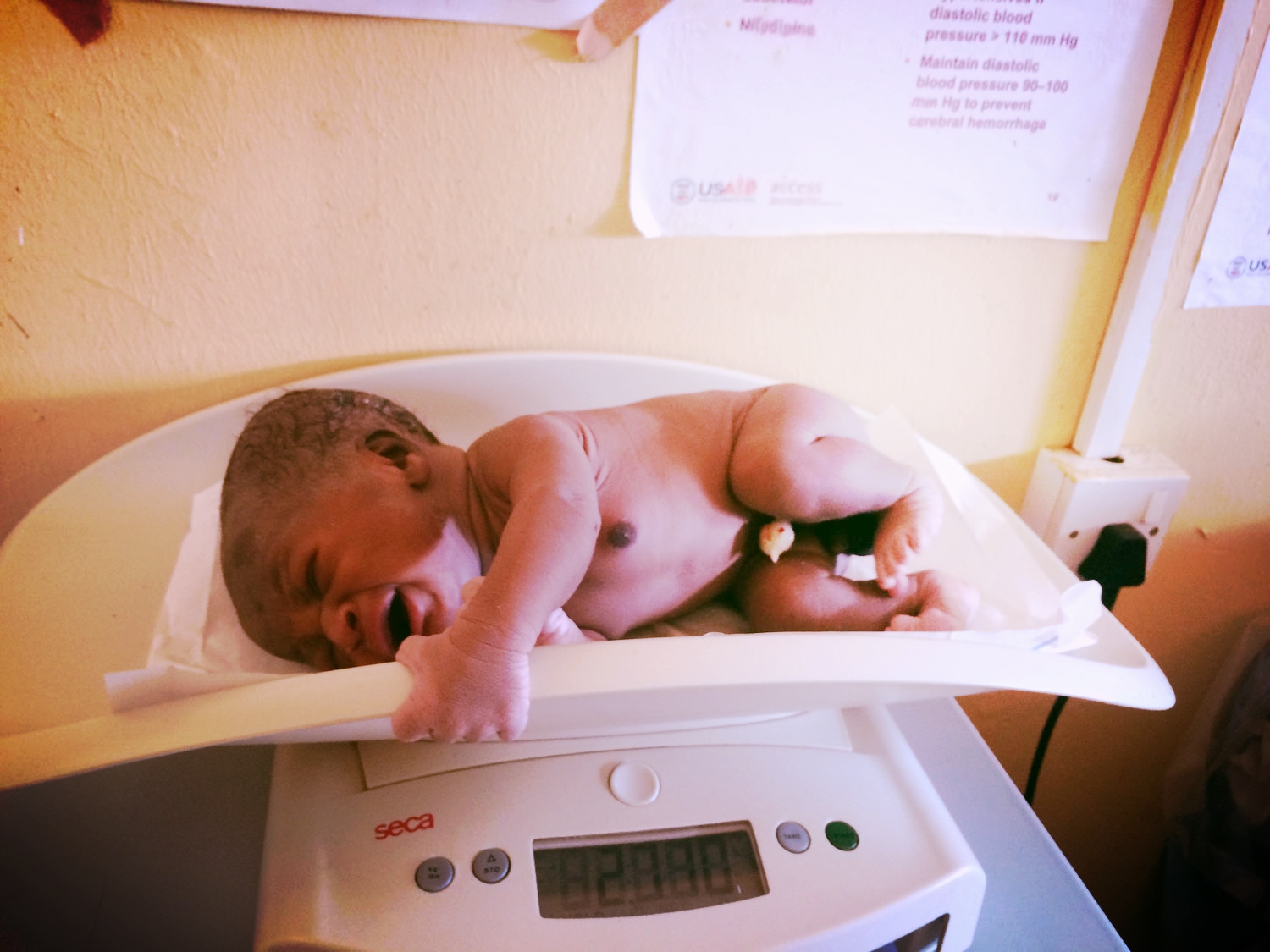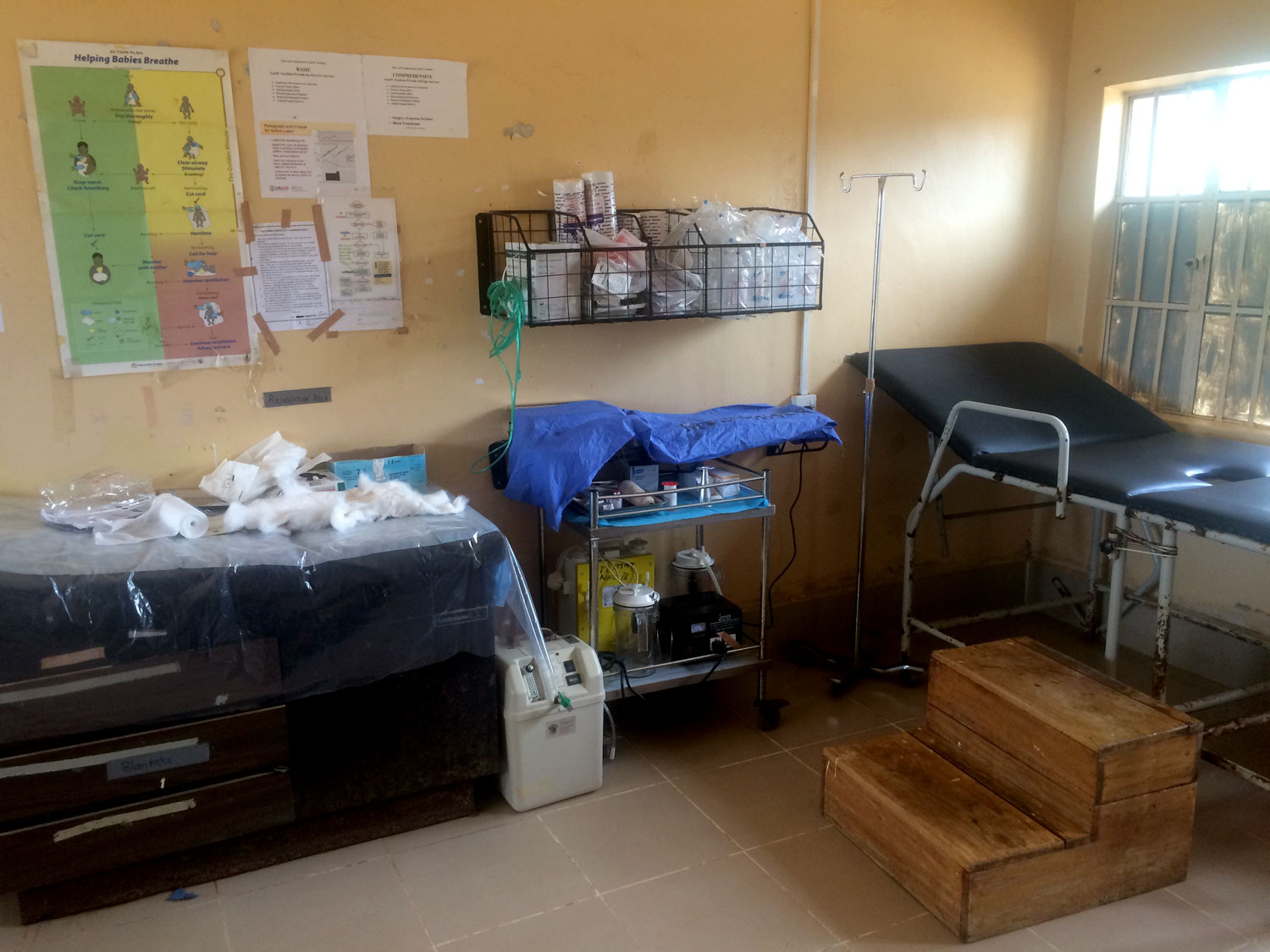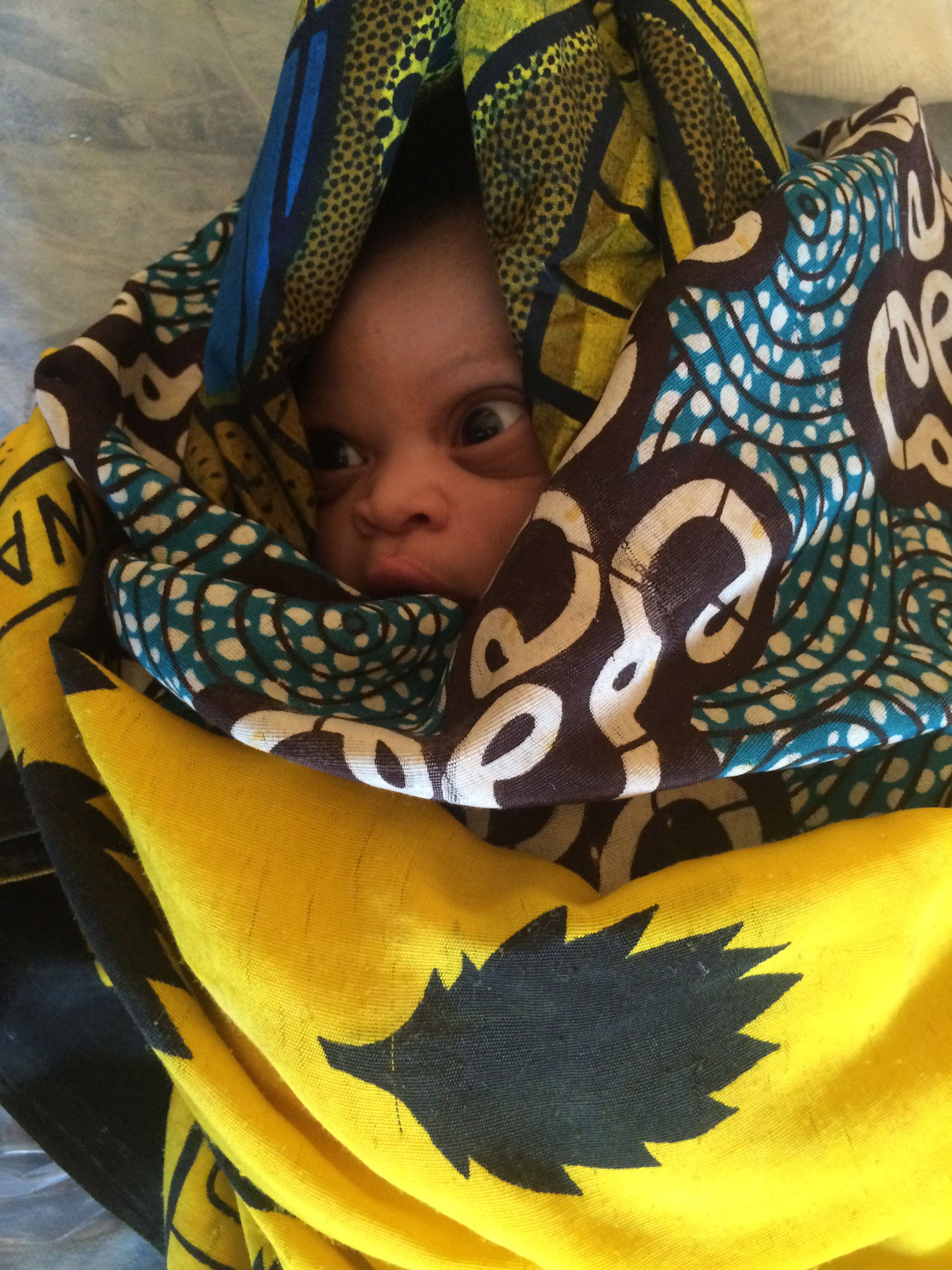Blood Pressures & Babies
Last week, while working in the antenatal clinic, I noticed that no one was taking blood pressures as part of the prentatal care being offered. I tried to address this with a few of the midwives in the most non judgemental way possible and the response that I received was a bit disturbing, however truthful! They basically told me that it is simply too difficult to take manual blood pressures on 70-100 woman. They told me that the stethoscope ear pieces were too hard on their ears and that after taking just a few readings, they would just start to fabricate random blood pressures rather than actually take them! Given that monitoring for pre eclampsia is perhaps one of the most important aspects of prental care, espeically in a context such as this, I was a bit shocked. For those reading who are non-medical, pre eclampsia is characterized by high blood pressure, protein in the urine and often swelling of the bilateral lower extremities (although in low resource settings, the presence of a high blood pressure reading is often the first sign and also the easiest to identify). If untreated, pre eclampsia leads to eclampsia which leads to seizures during childbirth and often to death.
Today I went straight to the antenatal clinic and offered to take blood pressures on all of the women. Although I wasn't too excited about the idea of taking a million manual blood pressures, I figured that even if I identified one pre eclamptic woman, I would be making a difference. I also hoped that in doing so, I could perhaps serve as an example in an attempt to help elevate the prenatal standard of care being given. I also made a point to put in an order for an automatic BP machine and better stethoscopes with softer ear-pieces :) My ears were definitely a bit sore after taking 100+ BP's, however we did admit several pre eclamptic women for further monitoring. Thus, I'm calling this mission successful.
Halfway through my blood pressure marathon, the head nurse tapped me on the shoulder and told me that there were two women in labor. I dropped my 'cuff and ears' and headed into the labor 'suite' (I use the term 'suite' lightly), quickly threw on a plastic apron, gloves and a pair of much too small white, rubber boots. There were two women in the room. The woman on my left had just delivered, perhaps seconds before I arrived. After being given quick instructions on how to massage her uterus, I placed my hands on her abdomen, feeling for her contracted uterus and got to work kneading her hard belly, all the while, blood continuing to seep out of her birth canal. Not even ten minutes later, I glanced over at the other woman who had been croutched on the ground in a squatting position and noticed the crown of her baby's head appearing. While women back in the states would be comfortably lying on the delivery table, most likely anesthetized, this woman climbed up onto the birthing table unaided and before I even had time to don a fresh pair of gloves, the baby was out. I helped to suction the baby's nostrils and assisted with the chord clamping and gave the mom a dose of IM Oxytocin, then proceeed to massage my second uterus. A bit of a debate ensued after, as I tried to encourage the midwives to practice immediate skin-to-skin contact. They were hesitant and unwilling, preferring to wrap the newborns in blankets and leave them at the foot of the beds.



Spending so much time with pregnant woman here in the settlement and being so close to life and death on a daily bases has caused me to do a great deal of thinking, specifically about the differences between delivery in a country such as Uganda and the U.S; the differences not only in the delivery itself but also in the preparation leading up to the birth. Back home, we have the power and the knowledge to be in charge of our bodies (in most cases) from pre-conception to post-delivery. We can plan whether or not to become pregnant and after our urine dipsticks display a '+', we have nine months to fully prepare for the coming child. We order parenting 'how to' books, attend parenting classes and workshops, practice prenatal Yoga, consult with our friends who have gone before us, outfit the baby's room and line up friends who can deliver meals. Once the delivery gets closer we go to work in our search for the perfect midwife and if we are lucky, a doula as well. We visit birthing centers and hospitals and start choosing how and where we will bring new life into the world. Through every step of the process we are receiving routine antenatal care, which includes ultrasounds to tell us whether all is well inside the womb. In Africa, and many other areas of the world, women are never consulted about the decision of whether to get pregnant. Theirs is a life of subservience and reproductive surrender. There are no books for them to read or classes to attend on how to be a good parent, there is no one telling them what they should or shouldn't eat as the baby begins to grow inside their wombs. As their gestation period winds to an end, there are no ultrasounds, no fancy birthing suites and no pain medications. They do what their ancestors have been doing for millenia before them. They squat on a dirt or concrete floor and bring new life into the world. Their bodies know what to do and for many, both baby and mom come out of the experience healthy. The problem however, is that for the majority of women, this is not their story. According to the WHO, almost 800 women die from pregnancy or childbirth-related complications around the world every day, with 99% of maternal deaths occurring in developing countries (primarily Africa and areas of Asia and the Middle East). http://www.who.int/mediacentre/factsheets/fs348/en/
I am not saying that it is bad to do our very best to prepare for the birth of our children, to read books on the subject, to choose what foods to put into our bodies, to attend classes and to hand select a trusted midwife. What I am trying to say is that, all of these things are a privilege, a gift that we have been given due to our great luck at having been born in America, Canada or Europe. Let us be reminded of this gift and of the power that has been given to us; the power to choose, the power to deliver healthy babies. Let us use this knowledge to advocate for and support those organizations working directly with women to raise education levels, school enrollment and retention, those organizations who are working to strengthen women's economic autonomy, who are committed to improving maternal child health and who are investing in legal mechanisms to end the abuse of women.
For further reading on the subject, see:
http://www.halftheskymovement.org/pages/book Nicholas Kristof and Sheryl WuDunn's first book on 'turning oppression into opportunity for women worldwide'. In the appendix of Half the Sky is an extensive list of reputable organizations which support women.
http://apathappears.org/ Nicholas Kristof and Sheryl WuDunn's follow up book, which focuses on the importance of education while offering solutions and ideas that each of us can follow so as to help us become more informed and concientous global citizens.
http://samanthanutt.com/ Samantha Nutt, MD is the founder of War Child International and the author of the book 'Damned Nations', an incredible and informative read focusing on the effects of war, aid, health and our contribution. She believes that aid is wasted without investments in women's education and offers many helpful links and ideas as to how we can each get involved and make informed decisions regarding how we use our time and our 'giving'.